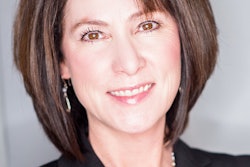
If you're a dentist with a prosperous practice, chances are you've been approached by representatives from dental service organizations (DSOs) expressing interest in buying your business. Whether you're contemplating selling now or keeping the option open for the future, it's natural to wonder about the motives driving a DSO's interest in your practice.
Why are they reaching out to you? What kind of information do they require about your practice? Most importantly, what sort of offer can you anticipate from a DSO? Before committing to anything, it's crucial to delve into understanding how DSOs operate so you can be prepared to navigate a potential practice transition.
How DSOs target dental practices
DSOs employ various methods to target practices for acquisition, ranging from passive to proactive marketing strategies. This includes sending out flyers, postcards, referrals and even making cold calls. In some instances, DSO representatives may go as far as contacting offices after hours to obtain the personal contact details of doctors. They might also scout potential practices by scouring local and trade publications' "best of" issues.
Once a DSO identifies a practice that fits their criteria, they delve deeper, often by analyzing the practice's online presence. By scrutinizing your website, DSO representatives gather crucial details such as the number of doctors and support staff in your practice. This information helps them gauge your practice's financial standing before initiating contact to validate their findings.
When it comes to the financial factors, they assess more than annual revenue. They consider aspects like the size, number of operatories, preferred provider organization/Medicaid/fee-for-service rations and the structure of your practice against their own criteria before proceeding to the next phase.
What to expect from a DSO offer
Upon confirmation that your practice meets their specifications, a DSO typically offers to conduct an in-house valuation. It's important to recognize that a DSO exploring your practice is inherently biased as they stand to benefit from the sale. To put it plainly, this tactic is like accepting an offer for your house without determining what its fair market value is.
DSOs often present verbal offers designed to impress, but the devil lies in the details. It's prudent to scrutinize the terms closely to ascertain their validity during the due diligence process. Pay attention to factors such as the multiples used for calculation, potential strings attached, and the feasibility of the offer in the long run.
Red flags
Dentists considering offers from DSOs should be vigilant for red flags, particularly if an offer appears too good to be true. One of my top recommendations is to request a list of doctors who've completed transactions with the DSO, ideally post transaction, which allows for valuable insights. Be wary if the DSO hesitates to provide references or feedback from past sellers.
Also, analyze the offer comprehensively. Pay attention to clauses such as noncompete agreements, equity levels, and productivity terms. Understanding the implications of each aspect is crucial to making an informed decision and avoiding potential pitfalls.
Maximizing value
To ensure maximum value, dentists should strive to create a competitive environment when considering offers. Seeking alternatives and engaging with expert brokers who prioritize maximizing value can yield better outcomes in the short and long term for dental entrepreneurs.
Seasoned practice brokers will proactively market your practice to a range of qualified DSOs, help leverage up the offers (not only for cash upfront but also to negotiate deal structures for future wealth-building opportunities), help you assess the offers available, and more to guide you to a successful transaction that satisfies your transition needs.
Navigating DSO offers requires a thorough understanding of your practice's market potential, offer terms, and available options. By arming yourself with knowledge and seeking expert guidance, you can make informed decisions that align with your objectives and secure peace of mind during practice transitions.
As the chief operating officer at Professional Transition Strategies (PTS), Rebecca Kilibarda is responsible for working directly with the president of PTS to develop business operations of the company. As the architect of business strategy, Kilibarda has helped lead the team to become one of the top 250 fastest-growing companies in the U.S. Kilibarda can be reached at [email protected].
The comments and observations expressed herein do not necessarily reflect the opinions of DrBicuspid.com, nor should they be construed as an endorsement or admonishment of any particular idea, vendor, or organization.



















